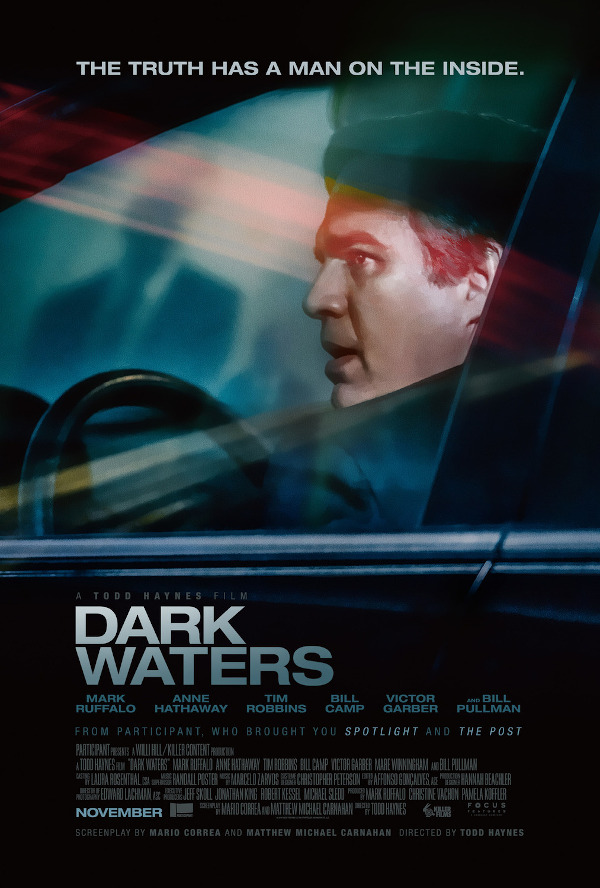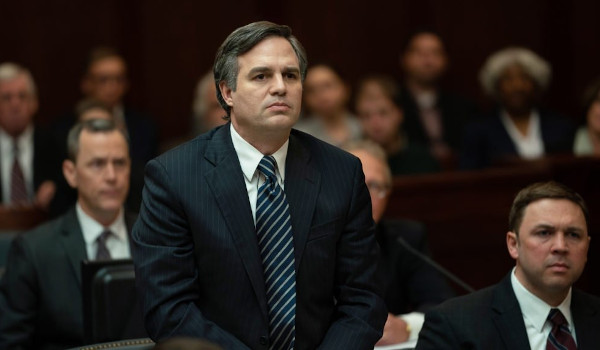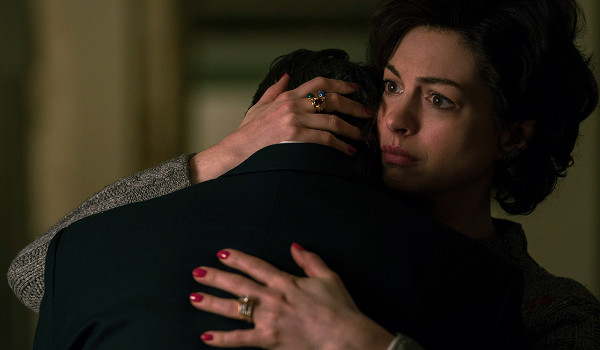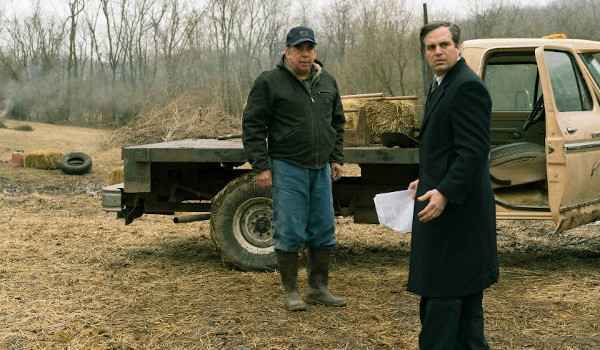- Title: Dark Waters
- IMDb: link

 Dark Waters is an interesting story that isn’t always told in an interesting way. Based on real events, Mark Ruffalo stars as corporate lawyer Robert Bilott who gets roped into taking on the kind of client his firm usually argues against when a farmer shows up in his offices with a story to tell how his land is being poisoned by the small town’s main employer, DuPont. Much like the court case itself, the film drags on as any movement in events happens at a glacial pace over decades (eventually the movie begins to increase the rapidness of its fast-forwards to alleviate some of the on-screen stagnation).
Dark Waters is an interesting story that isn’t always told in an interesting way. Based on real events, Mark Ruffalo stars as corporate lawyer Robert Bilott who gets roped into taking on the kind of client his firm usually argues against when a farmer shows up in his offices with a story to tell how his land is being poisoned by the small town’s main employer, DuPont. Much like the court case itself, the film drags on as any movement in events happens at a glacial pace over decades (eventually the movie begins to increase the rapidness of its fast-forwards to alleviate some of the on-screen stagnation).
The script by Matthew Michael Carnahan and Mario Correa showcases how a big corporation flaunts its wealth and privilege, while ignoring any responsibility, even when solid proof of their wrongdoing is exposed. The other aspect to the film, not as well explored, is how the case changes Bilott’s life, both professionally and at home, when he decides to take on a case that eventually becomes more of a crusade he feels obligated to see through. The film’s set-up reminded me of 1998’s A Civil Action (among other films) which explores many of the same themes.
The film’s biggest assets are court case itself, the measures DuPont took to avoid taking any responsibility, and Ruffalo who embues the our protagonist with enough righteous anger to continue fighting despite the innumerable road blocks in his way. Because the subject manner is compelling, director Todd Haynes steps back to allow the story to unfold naturally, but a bit more style could have been used to better frame the story and help move the film along. I’ve often argued that too many of Wes Anderson‘s films have style at the expense of substance; Dark Waters has the opposite problem. And, in terms of cast, Anne Hathaway is grossly underutilized as Bilott’s wife. Sadly, her one big moment scene, standing up for her husband, borders on melodrama.
There’s enough to keep Dark Waters moving, even if the film feels longer than it is. I do think a documentary on the court case, the scientific study the movie explores in its second-half, or just on safety issues surrounding Polytetrafluoroethylene could have been just as interesting as what we get here. The spotlight on Bilott does offer a human look inside the legal system and how a lawyer and plantiffs, even with the law on their side, may spend decades fighting a prolonged and debilitating battle seemingly without end.



